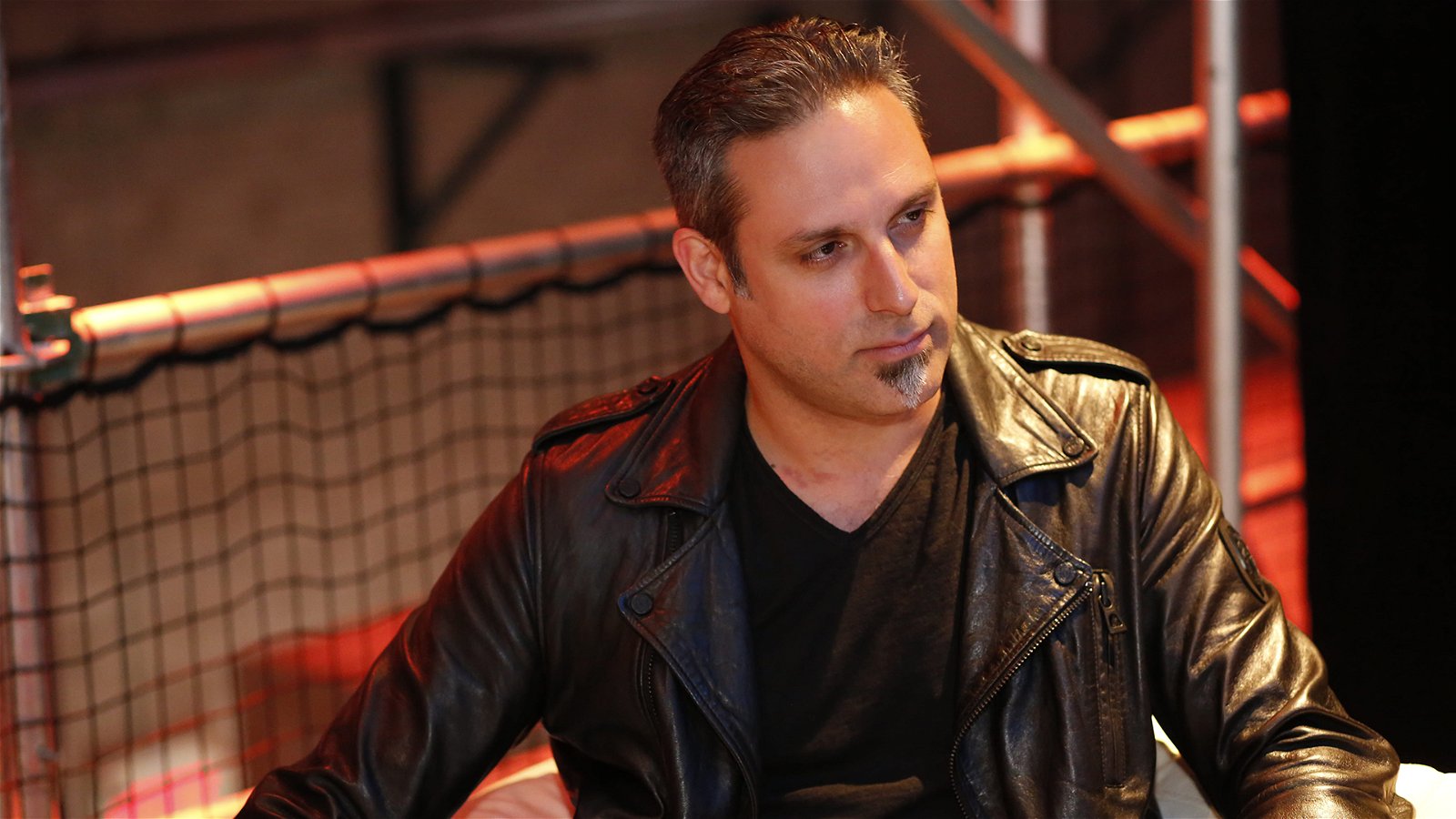When it comes to the gaming industry, new studios come and go almost on a daily basis. Even some of the big names of yesteryear no longer exist, and what is a huge studio today can be gone tomorrow.
Certain names in the industry have recognized this trend, and are starting to adapt to the future. Rather than focusing on a single type of media, studios like Alexandre Amancio’s Reflector Entertainment are attempting a new approach: create the universe, the IP, first, and let the media follow. Why set out to specifically make a game when you can create an entire world spread across books, film, television, comics, and games by creating that mythology first? If the world is interesting and captivating, fans want to experience it in more than one way.
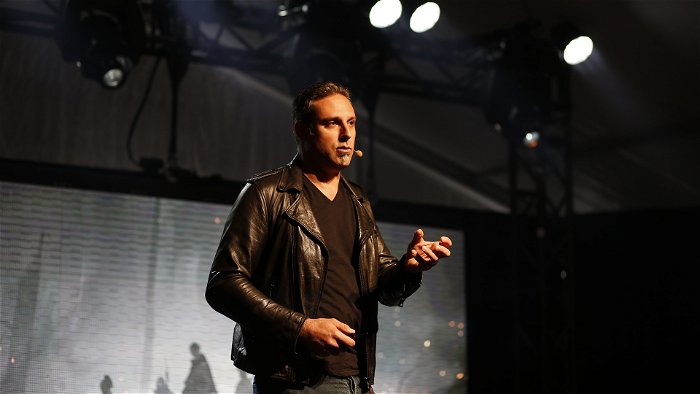
CGMagazine was lucky enough to snag Alexandre Amancio for a conversation to hear from him personally about what exactly Reflector Entertainment is all about, and what the company is attempting to accomplish.
CGMagazine: What can you tell us about the new studio?
Alexandre Amancio: I think the main distinguishing factor between Reflector and everyone else is that we don’t see ourselves as a game/film/TV studio or publishing house. Reflector is first and foremost a universe; it’s a world company. We build worlds, we want to build mythologies, and we do that in an agnostic way. We don’t look at where it’s going to live. We first start with thematic stories and worlds that start off with one very specific idea that we believe is relevant to the times. Once we have that idea we start building a world around it, a mythology, some characters, and once we see that there is a resonance, we then start looking at how we can spread that world across multiple channels.
As an example, the author of Conan the Barbarian, Robert E. Howard, essentially said “I can’t take credit for my work because I felt that I was channelling something, it’s almost as though these events, this world, actually existed and I was only a vessel that was trying to write as quickly as possible while this stream of information flowed through my mind.”
I think that whenever you tap on to something that is essentially very true, it feels like that, it feels like you’re channelling something and that’s what we’re chasing. We’re chasing after these mythologies that will flow out of us and once we see that there’s a universe itching to come alive, these are the ones that we take one step further and take really smart creatives from every different channel around the table and try to craft these stories that all stem from this one universe.
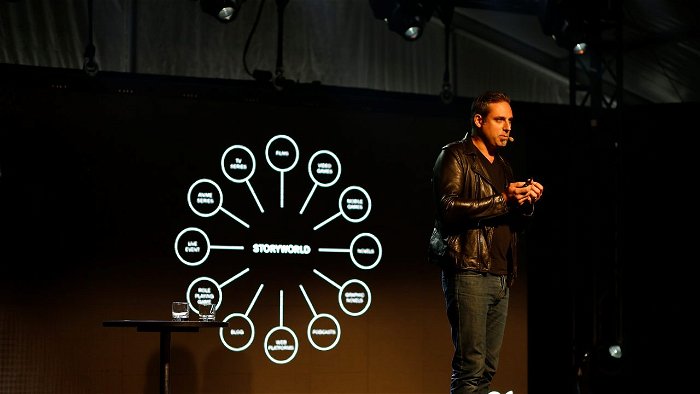
CGMagazine: So you’re not just there to make games, you’re there to create worlds and whatever comes out of that just follows. On that note, what do you guys have cooking up right now?
Alexandre Amancio: I can tell you that we’re working on about five different universes, five different IPs. One of them we just announced the name, Hellfighters, that one we are currently writing the script for the film, we’ve started pre-production and conception on the game, we’re also developing a narrative podcast associated with it as well as a graphic novel series and a novel trilogy.
There is another one that we are in talks with a third party for a universe we are collaborating on. I can tell you there is somebody major involved, a major player from the film industry that’s involved. It’s somebody that we respect tremendously and sees the world through the same filter…sees stories as being vehicles for worlds and universes rather than seeing it as a finite film.
Then we have other ones that are in various levels of development. One project that we are working on along with two people from the film world that have also done television. And we have three that we are developing internally, ideas we’ve had internally and are developing. But again, all of them are slated to be much more than a game or a film or a TV show. They’re all mythologies, worlds, and universes. Some are inter-connected and some are not, but that’s the filter we see everything through.

CGMagazine: How big is your studio then, if you’re tackling all these different media?
Alexandre Amancio: Because of the nature of how you do all these media, except for the gaming industry where it tends to be not only simpler but allows you to have more control of quality—to have your team be internal. A lot of the other industries, like film, TV, or print, you deal with people with whom you collaborate for projects but you don’t hire them internally, they’re sort of freelance. This is true for film, you hire a producer, you team up with creatives and create the property, then when you produce it, it’s all people you put together for that production that disband afterwards. It’s just the nature of the film and TV business. In the comic book world it’s a bit the same, you put together a team, you create the property, write it, illustrate it, and then you use a third party like Image Comics for example to publish it. For games it’s different. There are so many moving pieces that go into making a game that you have to actually develop stuff, and the best way to do that in my opinion is internally.
This is why we’re ramping up our studio to around 150–160 people in the next 12–18 months. In those people we have about 10–12 people that are part of Reflector Entertainment. It’s more of the IP people, you have high level executives that help shape these universes that are different creative braintrusts that we put together for each IP. Then we have staff for two games, we are targeting teams that are about the size of 90 people. The reason for that is because the nature of starting a production, you have a pre-production team that you then ramp up for production, so if you have two productions in tandem you disassemble them so that when one of them is in conception the other is in production so you can cycle people through. Because we’re part of a larger family, Reflector is a subsidiary of Lune Rouge, Guy Laliberté’s company, so a lot of the back-office services, HR, accounting and all that stuff, our head office is providing. Which means all of those people that I’m mentioning are just going to be working on the creative content.
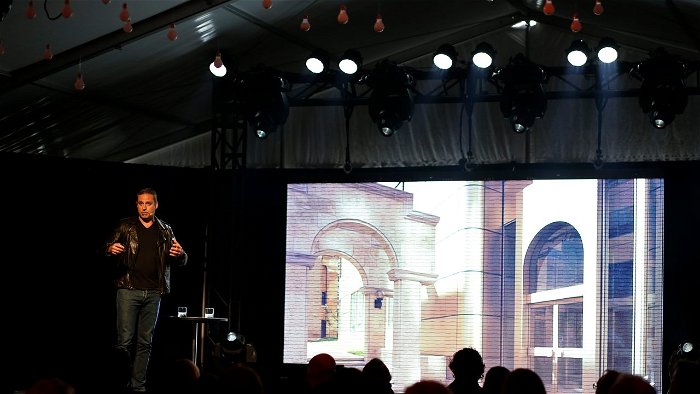
CGMagazine: As far as games go specifically, what are some things you want to carry over from your time at Ubisoft and what are some things you want to leave behind? I know they’re really pushing games as a service, DLC, season’s passes etc. What did you take from there and what are you leaving?
Alexandre Amancio: First of all, I think that if you take any set of rules that you’ve pre-established and you try to apply them on every single one of your projects I think that’s a mistake, because you’re making stuff that is unauthentic. I think that the concept of a game should stem from the IP, and I think the same for all of the media. Every single story world that we built carries with it the ingredients of how to build the medium that give it life. If you do that I really, truly believe that you’re making something authentic. You stay away from formulaic stuff; I’d rather have something that has resonance that people still talk about two years down the road than something that makes a lot of money. Obviously I hope the studio stays alive and makes a lot of money so we can keep telling these stories, but the primary goal is to tell stories that are relevant to today. That’s the basis of everything.
To answer your question directly, maybe one IP, the game actually calls for because it fits perfectly with the actual theme, is something that is more of a ‘Free to Play’ with other stuff attached to it. Transactions maybe? For one IP though, that seems fake and tacked on because what you want is a product that you just buy and get the whole experience. The story needs to determine the type of game. That being said, I can tell you the first game we’re working on doesn’t have that games as a service approach because it doesn’t fit with the IP. It’s more of an actual product that you buy and is an experience.
As for what I want to bring over from Ubisoft and what I don’t, first of all, I’ve worked on games that had a 30-person team and the last one [Assassin’s Creed: Unity] we had 1,000 people working on it across ten studios and three continents. For me, one of the reasons that I decided to do this was that I wanted to focus on smaller teams. I think that there’s a magic number of just fewer than 100 people. Everyone on the team knows what everybody else is doing. It’s small enough so that when there’s a problem, everybody feels like it’s their job to fix it. It’s a close collaboration; everybody has a direct impact on quality. I don’t want to remove any credit from people who work on large games because it is a very difficult thing to do; just making those gears work and synchronize is one of the hardest things I’ve ever had to do. It’s just a different game. I want to focus on smaller teams, direct intervention on quality, where people feel like “I did this, we all did this together.”
When you’re a big company your focus changes. It’s just a very natural thing, it starts becoming more like a business and it’s just the nature of how it works. I think keeping Reflector smaller, giving it that Indie feel and Indie approach to creation…willing to take more risks on certain creative things, keeping the budget small so that you can actually risk and not be too dependent on whether you reach a certain number of copies sold. That’s another reason I think this is such a cool endeavour. Having the safety of company that has backing but having that freedom to be able to be a bit more edgy and creative when you’re building your products.
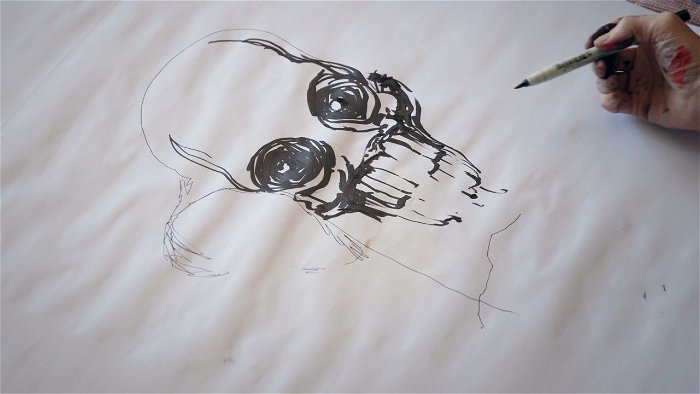
CGMagazine: Anything else you’d to add?
Alexandre Amancio: We’re starting small, and to be very frank and humble we did this first announcement because we had been working under the radar for quite a bit and you can say that you’re a cross-platform or trans-media company, but I think that if you’re going to do it for real it needs to seep down into the very DNA of the company that you’re building and I think that this first public communication that we’ve done on Reflector is the beginning of a story and I really want to establish a close relationship with the journalists but also with the fans—this is not a monologue, it’s a dialogue. We want to try something new, we want to try a new approach and I don’t think we could have done this 10–15 years ago. There is this accessibility to all these different media where you can tell these stories in a different way and I think it’s an experiment. I think this is the way of the future and it will create IPs and universes that will resonate more with today’s public and this is what people want. They want to be able to follow stories through all these different media, they want to be able to see the links that nobody else saw and talk about them. I want the act of taking part in these stories to be an act of creation in the same degree as what we’re doing, the creators. That’s the relationship that Reflector wants to establish with the fans.
